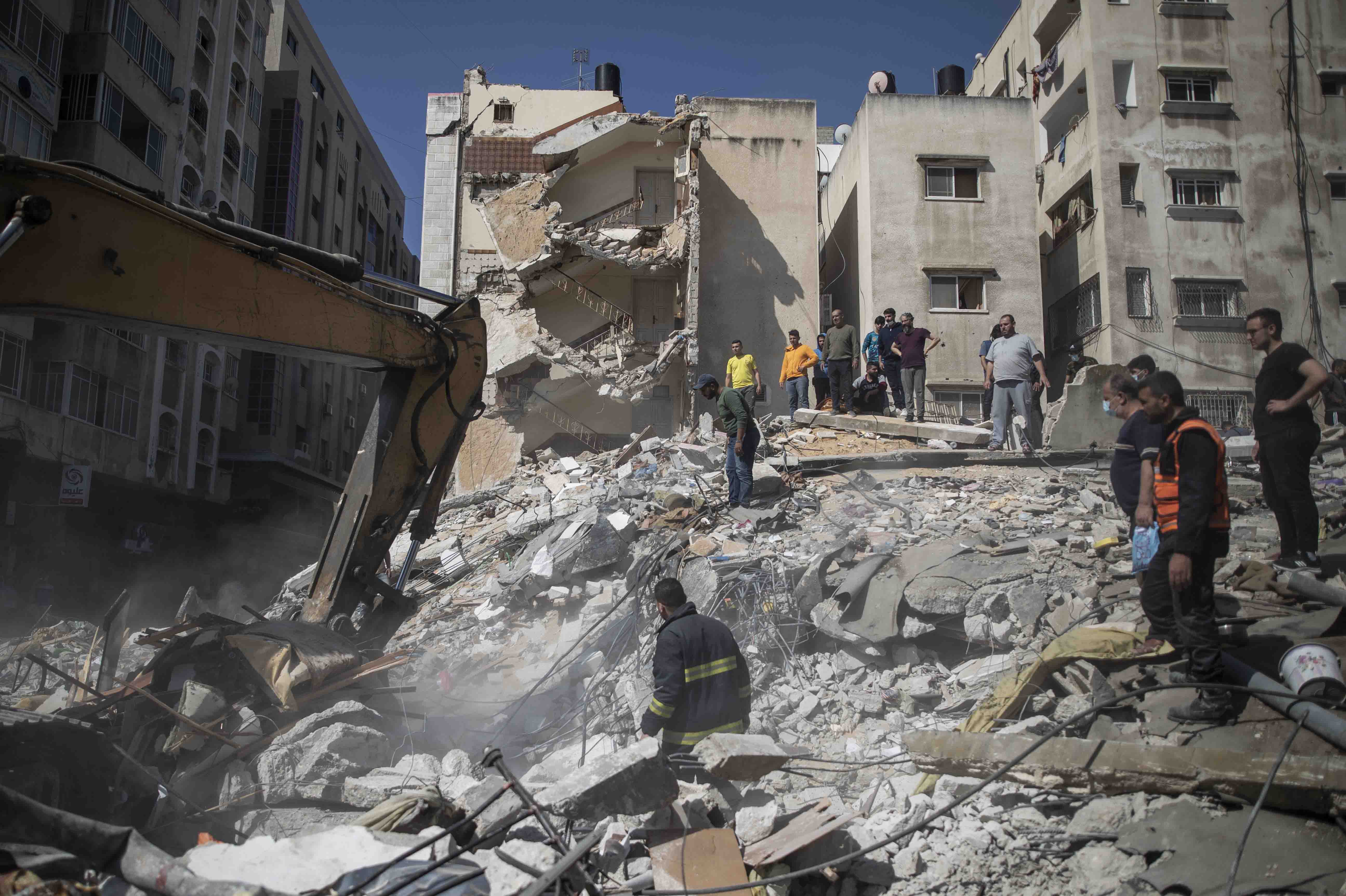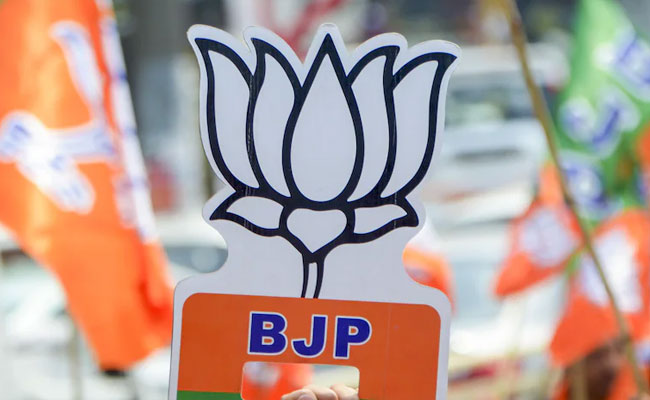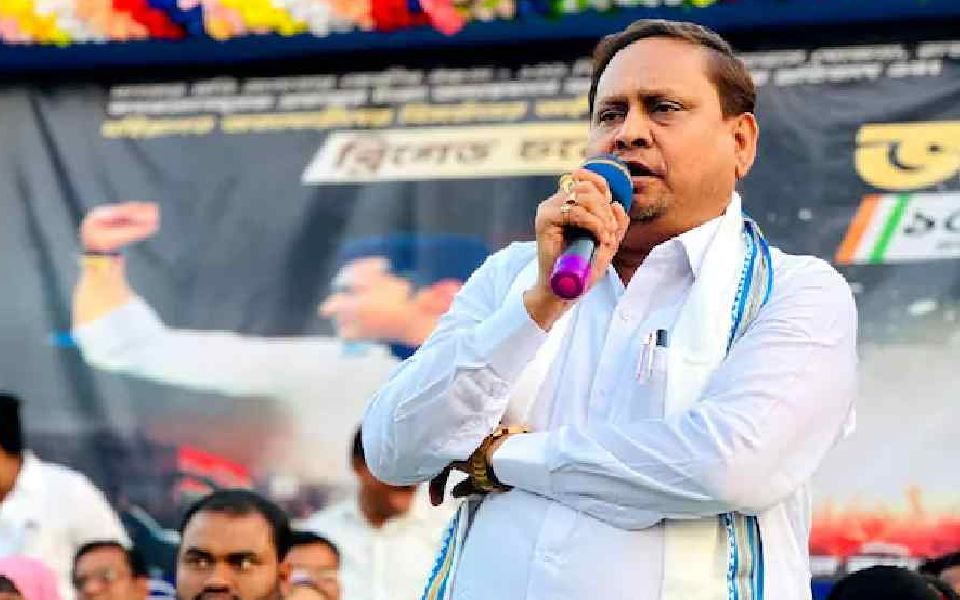Dubai, May 16: A league of Muslim nations on Sunday demanded that Israel halt attacks killing Palestinian civilians amid heavy fighting between it and Hamas in the Gaza Strip, even as fissures between countries over their recognition of Israel emerged.
A statement by the 57-nation Organization of Islamic Cooperation hewed closely to previous ones issued by the Saudi-based group, including backing the decades-old call for Palestinians to have their own nation with East Jerusalem as its capital.
However, recent normalization deals between Israel and some nations in the group as well as their own concerns about Hamas saw diplomats at points instead criticize each other.
The massacre of Palestinian children today follows the purported normalization, Iranian Foreign Minister Mohammad Javad Zarif said. This criminal and genocidal regime has once again proven that friendly gestures only aggravate its atrocities.
The past week has seen some of the worst violence across Israel and the Palestinian territory since the 2014 war in Gaza, with militants launching missiles and Israel pounding the blockaded coastal strip home to 2 million people with heavy fire. At least 188 Palestinians have been killed in Gaza with 1,230 people wounded. Eight people in Israel have been killed.
The Organization of Islamic Cooperation statement called on Israel to respect Muslims' access to Al-Aqsa Mosque, the third-holiest site in Islam, as well as stop settlers from forcibly evicting Palestinian families from their homes.
The plight of the Palestinian people is the bleeding wound of the Islamic world today, Afghan Foreign Minister Mohammad Haneef Atmar said.
But the videoconference meeting saw some delegates instead turn their fire toward countries like Bahrain, Morocco, Sudan and the United Arab Emirates, Muslim nations which reached normalization deals last year to recognize Israel. While Egypt and Jordan earlier reached peace deals, supporters of the Palestinians criticized the new countries for recognizing Israel before the formation of an independent Palestinian state.
Turkish Foreign Minister Mevlut Cavusoglu joined Zarif in criticizing the normalization, though Israel maintains diplomatic ties with Ankara.
There are a few who have lost their moral compass and voiced support for Israel, he said. If there are half-hearted statements within our own family, how could we criticize others? Who will take our words seriously?
Zarif also accused Israel of genocide and crimes against humanity.
Make no mistake: Israel only understand the language of resistance and the people of Palestine are fully entitled to their right to defend themselves, Zarif said.
Hamas, which seized power in Gaza in 2007, didn't take part in the meeting, which came before consultations at the United Nations over the crisis.
Across the Arabian Peninsula, reactions to the fighting similarly has been mixed. In Qatar, home to the Al-Jazeera satellite network, hundreds turned out late Saturday night to listen to a speech by Hamas' top leader Ismail Haniyeh. Kuwait's parliament speaker reportedly spoke with Haniyeh on Saturday, as did Qatar's foreign minister.
Meanwhile, in Bahrain and the UAE, government-linked media hasn't been covering the current flare-up of violence nonstop like other networks in the region.
There are murmurs of dissent though. In Bahrain, civil society groups signed a letter urging the kingdom to expel the Israeli ambassador. In the UAE, where political parties and protests are illegal, Palestinians have expressed their anger quietly, worried about losing their residency permit. Some Emiratis also have expressed concerns.
The region's only democracy," tweeted the Emirati writer and political analyst Sultan Sooud Al Qassemi in writing about Israel's strike on a Gaza building that housed the offices of The Associated Press and Al-Jazeera.
Hussein Ibish, a senior scholar at the Washington-based Arab Gulf States Institute, said most Gulf Arab leaders fear Hamas' rocket fire as "cynical, dangerous, unnecessarily provocative and endangering Israelis and Palestinians in Gaza alike. That takes the pressure off those Gulf leaders to respond, unlike in other confrontations involving the Al-Aqsa Mosque or when Israeli settlers force Arab families out of their homes, he said.
There won't be much sympathy for what is widely viewed in the Gulf as Israel's heavy-handed and disproportionate retaliation," Ibish wrote, "but it will be much easier for Gulf leaders and many citizens to regard the exchange as a tragic conflagration at the expense of ordinary people brought about by two leaderships over which they have neither control nor responsibility.
Let the Truth be known. If you read VB and like VB, please be a VB Supporter and Help us deliver the Truth to one and all.
New Delhi: The Chinese Embassy in India has rolled out a new online visa application system beginning Monday, aiming to make the visa process easier and faster for Indian travellers.
According to a report published by NDTV, the announcement was made by the Chinese Ambassador, who said that from December 22, 2025, applicants can fill out visa forms and upload all required documents online. The new facility can be accessed through the embassy’s official website, offering a more convenient way to apply without lengthy paperwork.
With this system, applicants will be able to complete most of the documentation online, reducing the time spent at the visa centre.
ALSO READ: Bengal MLA Humayun Kabir floats new party days after laying foundation for Babri-style mosque
The Chinese Visa Application Service Centre in New Delhi will continue to assist applicants alongside the online system. The centre functions Monday to Friday between 9 am and 3 pm and is located at the Shivaji Stadium Metro Station in Connaught Place. Applicants can also contact the centre by phone if needed. The information was shared by the envoy on his post on X, too.
According to an important notice issued by the Chinese Visa Application Service Centre in New Delhi, applicants must now visit the official website of the centre to create or sign in to their accounts. After logging in, applicants are required to fill out the visa application form online and upload all necessary supporting documents through the portal.
As per the official notice, applicants must first create an account on the visa centre’s website, fill out the application form online, and upload all supporting documents. Before submitting their passport at the centre, they must ensure that their application status shows “online review completed” and that they have received the confirmation email.
The introduction of the online visa application system is seen as a step toward enhancing people-to-people exchanges and facilitating travel between India and China.
Recently, India also confirmed that the visa regime for Chinese nationals is now fully restored. Tourist visas, which were suspended after the 2020 border tensions, resumed globally in November 2025. Business visas had already restarted earlier.
As per the report, the resumption of visas is part of a series of "people-centric" confidence-building measures agreed upon by both sides in 2025, which also included the resumption of direct commercial flights in October 2025 and the revival of the Kailash Manasarovar Yatra pilgrimage.
The move is expected to encourage tourism, business travel, and cultural exchange between the two countries.





